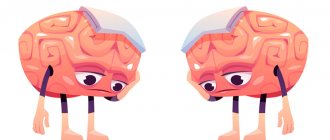- General information
- Types of alcoholic depression
- Causes
- Symptoms and signs
- Consequences
- Treatment
- Is it possible to cope on my own?
- Conclusion
Attention! Drug use causes irreparable harm to health and poses a danger to life!
The prevalence of depressive disorders in patients with alcoholism varies from 20 to 70%. Moreover, mental disorder is more often diagnosed in females. An unstable emotional background is of somatogenic origin, as it is associated with alcohol intoxication. Depressive disorders as part of the alcohol dependence syndrome are the most common cause of suicide. Complex therapeutic programs with a psychocorrectional approach help stabilize the emotional background and achieve stable remission.
General information
Depression refers to affective disorders in which a characteristic feature that comes to the fore is a decrease in the emotional background. Mental illness comes in different forms. Sometimes emotional imbalance is short-term. In this case, it is considered a temporary reaction.
Primary depression is quite often a trigger for alcohol dependence. An affective disorder that occurs against the background of prolonged alcoholism is considered secondary. The incidence of true alcoholic depression, according to various studies, varies significantly. But the reason is always the same - mood disorders occur against the background of prolonged alcohol intoxication.
In alcohol dependence, depression as a whole syndrome is rare. More often, depressive symptoms are present, which is a component of pathological craving for alcohol.
The severity of depression and its duration depend on individual characteristics. Depression in patients with alcoholism is considered depending on the condition in which it arose. Therefore, usually an affective disorder is considered in the structure of the withdrawal syndrome, in a post-intoxication state or during remission. Each stage of depression has its own characteristics. Hypotymia is often combined with other pathological symptoms (sleep disorder, dulled feeling of hunger, pathological craving for alcohol).
Goffman A.G. Clinical narcology / A.G. Goffman. – § 1.19.2. – Depression in patients with alcoholism. – M.: Miklos, 2003.
- Depression, to a greater extent than chronic somatic pathologies, disrupts the fullness and quality of life of the patient.
Depression and withdrawal symptoms
There is “post-withdrawal” depression. Having stopped drinking alcohol, a person appears to live a full life, but the joy from a sober life is only demonstrative. He is drawn to the former freedom, a state of euphoria and peace, and the everyday problems that the addict faces only worsen his mental state. A person begins to feel dissatisfied with his new life.
As a rule, alcoholic depression does not go away on its own. It greatly affects a person’s personality, provoking irreversible changes. The addict tries to avoid returning to alcohol, but is looking for a replacement that can return him to his former feelings. Thus, he can get carried away with gambling, turn to drugs, and become promiscuous. Depression leads to attempts to commit suicide. This condition requires immediate attention to specialists.
With severe withdrawal symptoms, the addict loses the ability to give control to his actions. He may cause harm to himself or others by becoming angry.
Depression manifests itself persistently, similar to the symptoms of manic-depressive syndrome, hypomania. In a complex case, therapy is carried out in a 24-hour hospital. A person demonstrating such mental disorders can become a real threat to the life and health of people.
A weak degree of disorder, which occurs at the very beginning of the development of pathology, is cured with antidepressants or psychotherapy sessions. Hypnosis is considered effective in psychotherapy, as well as group sessions and neurolinguistic programming. The impact is exerted on a person’s subconscious when a specialist gives the correct instructions and the client follows them.
Types of alcoholic depression
Depressive and anxiety disorders are common causes of suicide in patients with an established alcohol dependence. Comorbidity of the disease significantly increases the risk of suicide (up to 70–76%).
The toxic effects of alcohol and its metabolites on the central nervous system are undoubtedly a trigger for depressive disorder. But depression does not always develop against the background of alcoholism. In some patients with alcohol dependence syndrome, anhedonia is primary. That is, the primary spectrum precedes the development of alcoholism, which aggravates existing symptoms.
Thus, alcoholic depression occurs:
- Primary (10% of cases) – against the background of the disorder, addiction develops and pathological symptoms intensify;
- Secondary (60% of cases) – depressive disorder is formed as a result of chronic alcoholism.
Alcoholic depression is not assigned a code in the international classification of diseases. In narcology, mental disorders are conventionally divided according to severity:
- Lightweight;
- Average;
- Heavy.
- For patients with true alcoholic depression, alcohol is a means of relieving emotional discomfort. During remission, patients can abstain from use, since there is no pathological desire. But during periods of exacerbation of depression, long drinking bouts occur.
Chronic alcohol intoxication is a consequence of secondary depression. The incidence rate is 60%. With occasional abuse, the chances of developing a mental disorder increase. But in these cases, depression is considered as part of the alcoholism syndrome - syndromic independent. Typical heterogeneity of primary affect is noted. Based on its severity, this disorder is classified as subdepression.
Shcherbak E. A. Social and clinical-psychopathological aspects of the formation and prevention of depressive disorders in patients with alcoholism / E. A. Shcherbak - Psychiatry. – Dissertation. – 2006. – 14 – 30 p.
Hypotymia is always considered within the framework of a personal emotional reaction. Hypothymic states occur in individuals who always react to traumatic circumstances.
Mild depression in alcoholism is explained by the person’s lifestyle. Addicts with difficult family and work adaptation are more likely to experience deep depression.
- The severity of a mental disorder depends not only on the “experience” of alcoholism. Depression, together with progressive degenerative processes in the central nervous system against the background of chronic intoxication, is extremely difficult.
Get help now
Do any of your relatives or friends have an addiction? Have you tried in every possible way to help, but as a result the person still returned to his past life?
You are not the first to encounter this problem, and we can help you.
We guarantee anonymity, we will persuade you to undergo treatment, and we will help you choose a center.
Call us
+7
or
Call me
Depressive disorder in patients with alcoholism is considered depending on the condition in which it arose:
- In the structure of withdrawal syndrome;
- In a post-intoxication state;
- During remission.
Mental disorders in the structure of withdrawal syndrome are highlighted separately because they have been studied more deeply.
Depending on the structure of depression, features appear in the symptoms of alcoholism. The structure of the disorder influences the syndrome of alcoholism.
| Psychopathological structure of depression | Distinctive manifestations |
| Apatoadinamic | The craving for alcohol and the duration of drinking bouts are moderate. Tolerance is reduced. |
| Dreary | Tolerance is high, long-term binge drinking. Generalized form of craving for alcohol. |
| Alarming | Tolerance to alcohol is reduced, desire is weak. In the post-taxation period, there is an increase in anxious and melancholy experiences, which increase the risk of suicide. |
A long period of alcoholization provokes the development of abstinence and post-intoxication states. Therefore, the severity of the course of an endogenous mental disorder of any psychopathological structure increases significantly. The phases of depression are prolonged, and difficulties arise during pharmacotherapy. Because stable resistance is formed.
Depression combined with alcoholism often leads to breakdowns during remission. Relapse of the combined disease reduces the chance of a favorable outcome during addiction rehabilitation.
Can alcohol make depression worse?
The nature of social interaction often determines the level of risk of developing chronic reactions. If depression is burdened by habit, then doctors have to solve problems in a complex manner. In addition to problems of physical well-being, difficulties caused by changes in behavior patterns are aggravated. According to scientists who practice cognitive psychotherapy, illness is provoked by beliefs formed in childhood. They intensify when exposed to certain circumstances in adulthood.
According to this theory, everyone faces the “cognitive triad”: a low understanding of oneself, the environment and one’s own future. Alcohol creates fertile ground for the further development of these ideas. A person quarrels with loved ones, he is fired from his job, and he may completely lose faith in the future.
Such changes cause pain to relatives and friends. During periods of sobriety, the drinker is acutely aware of his problems and inferiority. Drunkenness can be accompanied by repeated unsuccessful attempts to recover from the addiction. A person who drinks, but has not lost the remnants of his humanity, may have a hard time worrying about the consequences, gradually plunging into spiritual darkness and despondency.
Unfortunately, new milliliters of the life-saving remedy do not have such a beneficial effect as at the very beginning. An additional portion acts like a catalyst: it pushes you to the edge of an invisible abyss, and in some cases leads to death. There are sad statistics that confirm that the success of healing depends on how timely assistance is provided. The natural result of a negligent attitude towards oneself and one’s neighbor is death caused by suicide or the final destruction of the body. Addicts often die as a result of an accident, since their instinct of self-preservation is dulled, desires and motivation are lost. Their hygiene skills decrease, they are distracted in everyday life and risk getting into an unpleasant situation on the street.
Getting out of this is not an easy task and requires an integrated approach. If a health course is prescribed at an early stage, when there are no complications yet, then it will be successful. With prolonged periods, you will have to deal with both a complicated course and accompanying dependencies.
The reactive course is observed in chronicles; it is provoked by severe psychotrauma experienced. In mature patients, everything occurs against the background of manic-depressive psychosis. In such difficult cases, hospitalization and observation by medical personnel are recommended. Success depends on the joint coordinated actions of doctors and the victim’s relatives, who are considered codependent and suffer no less. Don't be indifferent. Careful attitude can save a person's life. At the first alarm bells, you need to sound the alarm and seek help.
Author of the article: Yakovlev Evgeniy Anatolyevich
Narcologist, Candidate of Medical Sciences.
Causes
Based on research, it has been found that young and middle-aged women are more likely to be depressed than men in the same age range. This is due to the production of estrogens, which affect neurotransmitter systems in the central nervous system, causing psychopathological symptoms. But the main trigger for the development of true alcoholic depression is still long-term intoxication with ethanol breakdown products.
Ethanol is a depressant. It has a depressant effect on the nervous system. The psychoactive substance causes a malfunction in the serotonergic and dopaminergic systems. As a result of impaired synthesis and transportation of neurotransmitters, a depressed mood occurs and the ability to enjoy activities and express positive emotions is lost.
Predictors for the development of primary depression:
- Periodic ethanol intoxication;
- Genetic factor (complicated family history);
- Chronic or acute stress;
- Excessive emotional or intellectual stress.
Depressive disorders in the alcoholism clinic have been comprehensively studied. They are considered as an etiological factor, or are part of the structure of the disease of alcoholism. It is also possible that the disorder may occur during remission. The depth of depression in patients does not reach the full clinical syndrome. More often it is characterized as an incomplete or unstable mental reaction.
Tendency to alcoholism in the structure of depressive disorders from the standpoint of the biopsychosocial approach / O. D. Pugovkina, A. V. Popinako - Modern therapy in psychiatry and neurology. – No. 4. – 2012. – 26 – 29 p.
- Depression and alcoholism have a common development mechanism – pathogenetic.
Manifestations
Clinical symptoms are often moderate, and a severe course is not typical. Signs of the depressive triad are identified , including emotional, intellectual and motor depression.
The disease is manifested by a persistent decrease in mood, loss of meaning, and a feeling of internal and external emptiness. The world is losing its former colors. What previously evoked pleasant emotions now seems unimportant, unimportant. Loss of the ability to experience pleasure (anhedonia) causes sadness. Elderly patients are prone to developing anxiety disorders.
Intellectual inhibition is manifested by difficulties in learning new things and mental activity. It is difficult for the patient to understand someone else’s thought, he quickly loses the thread of someone else’s reasoning, and cannot concentrate when answering a question. He has difficulty thinking and formulating. Perception becomes superficial, memory and attention deteriorate, spontaneity of thinking is lost. Productive thoughts are replaced by endless thoughts of gloomy content .
The person’s face takes on the appearance of a “sorrowful mask . Movements slow down. The voice loses its richness of intonation and becomes monotonous. The slightest effort seems exorbitant. The patient spends a significant part of the time immobile, may refuse to eat, and remain in bed all day.
Delusional and hallucinatory disorders are usually absent. Quite typical is the appearance of overvalued ideas about one’s own inadequacy, inadequacy, guilt, uselessness and uselessness. The past is seen as wrong, the future as hopeless. Past minor offenses in the eyes of the patient “grow” into unforgivable sins. Suicidal thoughts and actions are possible.
The consequence of depression can be the rapid development of the next stage of alcoholism . Aggressive behavior, deterioration of relationships with loved ones, and severance of friendships and family ties are possible. The course of chronic somatic diseases becomes more severe. The likelihood of household and work injuries increases.
When making a diagnosis, “drunken grief” - unlike real depression, this condition does not entail a feeling of hopelessness and anhedonia, and lasts no more than a few days. Sometimes withdrawal symptoms are accompanied by individual depressive symptoms, but the leading role in the clinical picture in this case is played by the withdrawal syndrome; psychoemotional disorders disappear after 1-3 days.
Symptoms and signs
At the initial stage of the formation of alcohol dependence after abstinence, pathological symptoms are independently reduced. The symptoms are dominated by hysterical manifestations and a tendency to psycho-emotional exhaustion.
As alcoholism progresses, disturbances in the emotional sphere become irreversible (incorporated into the personality). Patients with a certain mental makeup - introverts of a disharmonious type - are prone to the formation of personality disorders during addiction.
Pathological symptoms of affective disorder:
- During withdrawal syndrome (stages II and III of alcoholism) - increased anxiety, sleep disturbance, motor agitation, dyspepsia. Often develops into delirium;
- In the post-withdrawal period - irritability, feeling of emotional discomfort, desire for loneliness. A person does not feel hungry, resulting in sudden weight loss. Cognitive disorders are noted, mental and motor reactions are inhibited. Interest in anything is either completely absent, the patient experiences weakness and constant drowsiness;
- During remission, there are causeless changes in mood, irritability and a tendency to aggression predominate.
- Almost all depressions associated with addiction occur with self-deprecation. A person is prone to self-accusation and does not see a way to solve his problem, suicidal thoughts arise.
The clinical picture largely depends on the form of alcoholic depression:
- Melancholic (Jasper's triad) – lethargy, depressive stupor. Symptoms are expressed in the first half of the day, and regression is noted in the evening;
- Apathetic - not interested in what is happening around (complete indifference);
- Agitated – hypermotor agitation, hypochondriacal complaints;
- Dysphoric – causeless anger, irritability;
- Depersonalization - feelings of inner emptiness, lack of empathy for loved ones;
- Hypochondriacal - obsessive worry about one's health;
- Hidden - the pathological symptoms of somatic diseases come to the fore (somatic “masks”);
- Depressive disorder with delusions is a psychopathological syndrome. Obsessive ideas, depressive delusions.
- Anxiety disorders with affective symptoms increase the risk of suicide. Suicidal tendencies are more often observed in the middle stage of alcoholism - outside of psychosis.
A low mood makes you want to drink alcohol, even in the absence of its physical attributes. Negative emotions activate alcohol-induced cognitive constructs in individuals with high psychological distress.
The relationship of anxiety and depression with alcohol problems in adolescence and young adulthood / A. V. Kopytov, E. A. Nakonechnaya, L. Z. Sitko, D. A. Kopytov - Medical News Journal. - No. 1. - 2013. - 26 - 31 p.
Depression after binge drinking
The second case is more serious. There may be a complex disorder that requires complex treatment and the help of specialists. After long binges, this state occurs 2-5 days after the cessation of drinking, and marks the beginning of withdrawal syndrome . This begins to appear at stages 2-3 of alcoholism.
The deterioration of the mental state occurs simultaneously with physiological symptoms. Tremors, convulsions, and other symptoms characteristic of withdrawal occur. Alcoholic depression is growing, the treatment of which will be required. It can be expressed by strong negative experiences , crisis and lack of purpose in life, lack of understanding of one’s own importance. This type of depression forces a person to see the world in dark colors, to feel complete powerlessness and despair. All this answers the question of why alcoholics may commit suicide during abstinence.
Depression of this kind should not be looked upon with disdain. They pose a hidden threat to humans. And it’s not just a matter of suicidal risk, although this cannot be ignored . So, after a binge, a person can look quite well and return to work and normal everyday life. However, inside he will be filled with negativity, will see the world in dark colors and will look for a substitute for alcohol that will bring colors back to life. Of course, the new way of experiencing joy may be even more detrimental. Gambling, drugs, promiscuous sex life, and dangerous behavior can be chosen as a substitute. Some people tend to “go to work” at such moments and get chronic fatigue syndrome. the help of competent specialists can eliminate such consequences .
Consequences
Alcoholic depression is considered a severe mental disorder. Without timely comprehensive rehabilitation, the prognosis for life is unfavorable.
Complications:
- Epileptic psychosis;
- Suicide;
- Alcoholic encephalopathy;
- Worsening of somatic diseases;
- Decreased libido;
- Sleep disorder (insomnia, hypersomnia).
- Decreased libido;
- Migraine;
- Decreased immunity;
- Degradation.
- In severe cases, alcoholic depression lasts 12 months. Psychological changes are increasing, the person becomes completely disoriented in his personality.
Treatment of post-alcohol depression in
For therapy, drugs with antidepressant effects are always used, but for patients with alcoholism the following are strictly prohibited:
- tricyclic antidepressants due to the risk of a critical decrease in blood pressure;
- MAO inhibitors due to the risk of hypertension, heart attack and stroke.
Preference is given to drugs from the group of selective serotonin reuptake inhibitors (SSRIs), which have a pronounced anti-anxiety, anxiolytic and sedative effect. In addition, according to clinical studies, SSRIs also have a positive effect in the treatment of alcohol addiction.
Psychotherapy is required, and the method of psychological correction is selected individually: the doctor needs to help the patient cope not only with depression, but also with addiction to drinking.
Along with the treatment of depressive disorder, the fight against alcoholism continues. The patient is offered to be coded, undergo rehabilitation, restorative treatment to eliminate concomitant post-intoxication diseases.
Don't put off visiting your doctor! You can get a preliminary consultation by phone from our operators. Call us around the clock at 8(969)060-93-93 .
Treatment and prognosis
The main goal of treating patients with addiction complicated by an affective disorder is to stop binge drinking and restore psychophysical health.
Main blocks of the rehabilitation program:
- Pharmacotherapy – relief of withdrawal symptoms, treatment of concomitant pathologies;
- Detoxification – complete cleansing of the body from toxins;
- Psychotherapeutic preparation for the next stages of treatment;
- Anti-alcohol therapy – relief of pathological cravings, reduction of depressive disorders;
- Psychotherapeutic correction: Individual psychotherapy – allows you to change distorted perceptions;
- Group psychotherapy – restoration of social role, building interpersonal relationships;
- Family psychotherapy – resolving intra-family conflicts, working out relationships.
- Reflexology;
To prevent a “breakdown,” patients with anxiety and depressive disorders are prescribed psychotropic medications. Favorable dynamics during the treatment program depend on the patient’s motivation. But, as a rule, patients with affective disorders do not interfere with their involvement in the rehabilitation process.
If you seek medical help in a timely manner, the prognosis is favorable. Single episodes of affective disorder are quickly relieved. If the degenerative process in the brain is not started, then the ability to work is completely restored. Suicidal thoughts do not return.
In recent years, a new approach to the treatment of alcoholism has been studied. The use of modulators of the opioid system shows high efficiency - a decrease in alcohol consumption is noted. Adjuvant therapy is considered as an alternative therapy. Complete abstinence from alcohol occurs due to the blockade of opioid receptors, which are involved in the “reinforcement” of the system.
Alcohol addiction and depression: approaches to diagnosis and treatment /A. V. Andryushchenko, Yu. A. Shulyak - Medical Council. — No. 19. – 2021. – 34 – 36 p.
Is it possible to cope on my own?
Dealing with alcohol-related depression on your own is very difficult. In most cases there is a relapse. Because alcohol addiction treatment is required. Therefore, comprehensive rehabilitation programs are provided. In severe forms of depressive disorders, the condition is aggravated by the development of psychosis, which requires medication relief.
Symptoms indicating the development of the disease
As a rule, this type of pathological phenomenon has certain clinical signs that resemble a manic-depressive state. Mental problems for an alcohol-dependent person who has stopped drinking can continue for up to six months without medical help. to independently determine that a person has a post-alcoholic depressive state, because the symptoms of alcoholic depression that have just begun to develop are moderately pronounced. The occurrence of severe affective disorders is very rare. The main complaints of patients faced with this pathological phenomenon include:
- Suicidal thoughts - their appearance is directly related to the fact that a long-term drinker loses contact with society and becomes unclaimed both professionally and socially.
- Reduced instinct of self-preservation - alcohol-dependent people during depressive syndrome do not perceive danger well and can provoke an accident because they become inattentive to their surroundings.
- Slowing down of the rhythm of life - a person in this state prefers to spend time alone, sitting in front of a computer or TV, because he feels a pronounced feeling of depression, guilt before others and himself.
- Loss of the meaning of life - against the background of alcohol addiction, everything around begins to seem monotonous, boring and uninteresting, the feeling of joy completely disappears, and the patient receives satisfaction only after drinking a new portion of alcohol.
The above clinical signs appear simultaneously with physiological disorders - a person develops signs of dyspepsia (nausea and vomiting), eating disorders , libido decreases, and the activity of the cardiovascular system changes.
If a person develops alcoholic depression, the symptoms and treatment will be completely similar to those of a neurotic depressive state. In order for the patient to cope with a dangerous mental condition as quickly as possible, relatives must persuade him to see a specialist and undergo a special course of therapy. However, in most cases this is difficult , because the alcoholic does not admit that he is sick.










